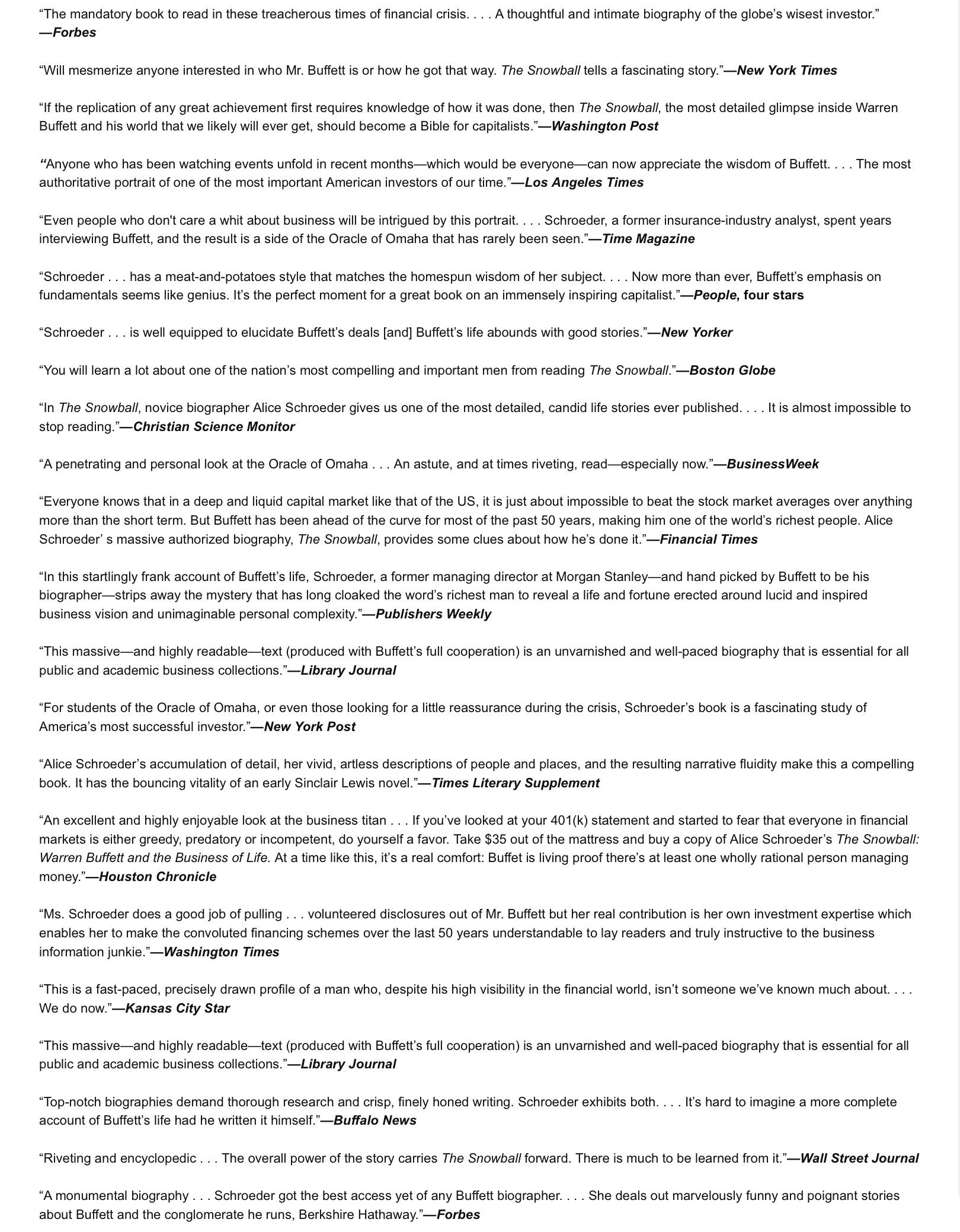Part 2
To prepare this week’s cover story, senior writer Anthony Bianco got an opportunity most investors — not to mention journalists — would trade their eyeteeth for: a chance to spend four days at Warren Buffett’s side. Bianco flew to Europe with Buffett on his much-loved private jet and then traveled with him through three countries as Buffett promoted recent Berkshire Hathaway (BRK.A) acquisition, Executive Jet Aviation.The words of wisdom that follow have been culled from Bianco’s nearly 40 pages of notes taken during his own private conversations with Buffett as well as at speaking engagements and press conferences. Clear themes emerge: Buffett insists on buying businesses he understands. He doesn’t like to sell his holdings. He avoids Internet and technology stocks. And he feels very lucky to be born at a time when his greatest strength — the ability to “allocate capital” — would be so appreciated.Although Buffett’s experience managing a company with $124 billion in assets is unique, his brand of homespun wisdom can serve all investors evaluating stocks and mutual funds for their own portfolios.
On being a good investor:
“I’m a better businessman because I am an investor and a better investor because I am a businessman. If you have the mentality of both, it aids you in each field.””I was born at the right time and place, where the ability to allocate capital really counts. I’m adapted to this society. I won the ovarian lottery. I got the ball that said, ‘capital allocator — United States.'””Success in investing doesn’t correlate with I.Q. once you’re above the level of 25. Once you have ordinary intelligence, what you need is the temperament to control the urges that get other people into trouble in investing.”
On identifying good companies:
“We don’t do due diligence or go out kicking tires. It doesn’t matter. What matters is understanding the competitive dynamics of a business. We can’t be taken by a guy with a sales pitch… What really counts is the presence of a competitive advantage. You want a business with a big castle and a moat around it, and you want that moat to widen over time. Coke and Kodak both had marvelous moats 20 or 25 years ago. Kodak’s has narrowed, while Coke has been building its moat. We want an economic castle.””The best thing that happens to us is when a great company gets into temporary trouble… We want to buy them when they’re on the operating table.”
On the size of his stock portfolio:
“If I was running $1 million today, or $10 million for that matter, I’d be fully invested. Anyone who says that size does not hurt investment performance is selling. The highest rates of return I’ve ever achieved were in the 1950s. I killed the Dow. You ought to see the numbers. But I was investing peanuts then. It’s a huge structural advantage not to have a lot of money. I think I could make you 50% a year on $1 million. No, I know I could. I guarantee that.””The universe I can’t play in [i.e., small companies] has become more attractive than the universe I can play in [that of large companies]. I have to look for elephants. It may be that the elephants are not as attractive as the mosquitoes. But that is the universe I must live in.”
On selling stocks:
“I don’t like to sell. We buy everything with the idea that we will hold them forever… That’s the kind of shareholder I want with me in Berkshire. I’ve never had a target price or a target holding period on a stock. And I have enormous reluctance to sell our wholly owned businesses under almost any circumstances.”
“Up until a few years ago, we sold things to buy more because I ran out of money. I had more ideas than money. Now I have more money than ideas.”
On holding cash:
“Today we have $15 billion in cash. Do I like getting 5% on it? No. But I like the $15 billion, and I don’t want to put it in something that’s not going to give it back and then some. The nature of markets is that at times they offer extraordinary values and at other times you have to have the discipline to wait.”
“If you think about it [i.e., the markets], you get these huge swings in valuations. It’s the ideal business arrangement, as long as you don’t go crazy. The 1970s were unbelievable. The world wasn’t going to end, but businesses were being given away. Human nature has not changed. People will always behave in a manic-depressive way over time. They will offer great values to you.”
On the Internet’s impact on business:
“The Internet as a phenomenon is just huge. That much I understand. I just don’t know how to make money at it… I don’t try to profit from the Internet. But I do want to understand the damage it can do to an established business. Our approach is very much profiting from lack of change rather than from change. With Wrigley chewing gum, it’s the lack of change that appeals to me. I don’t think it is going to be hurt by the Internet. That’s the kind of business I like.”
Part 2

